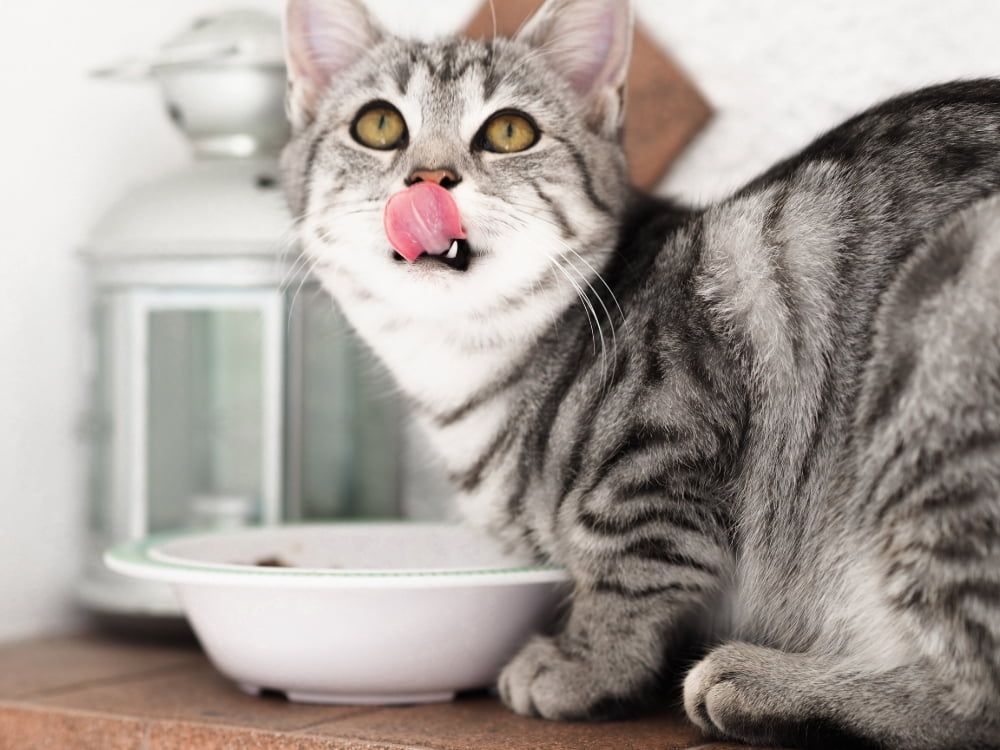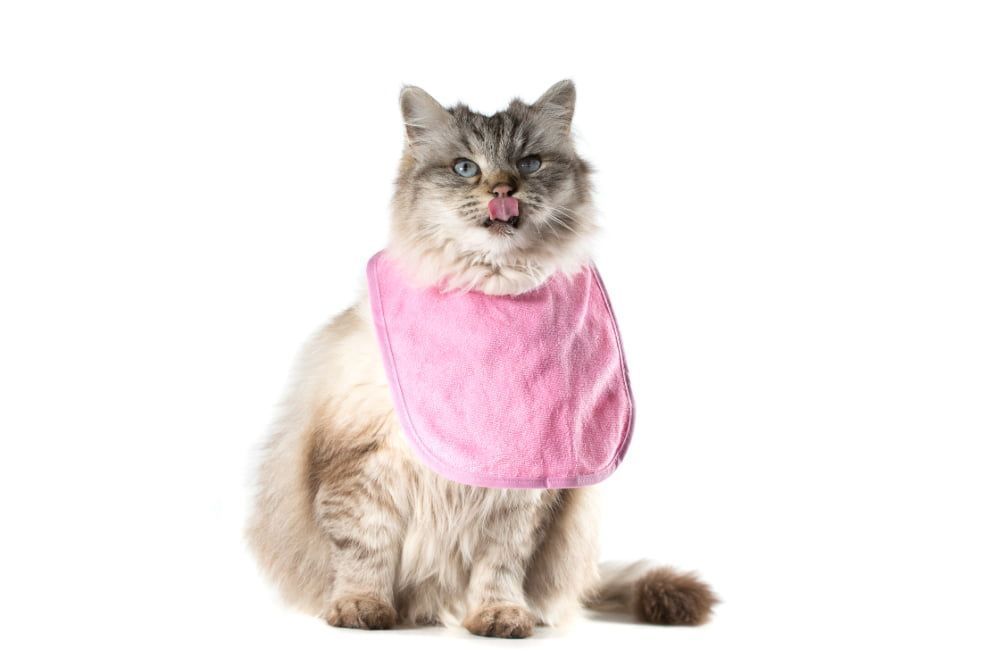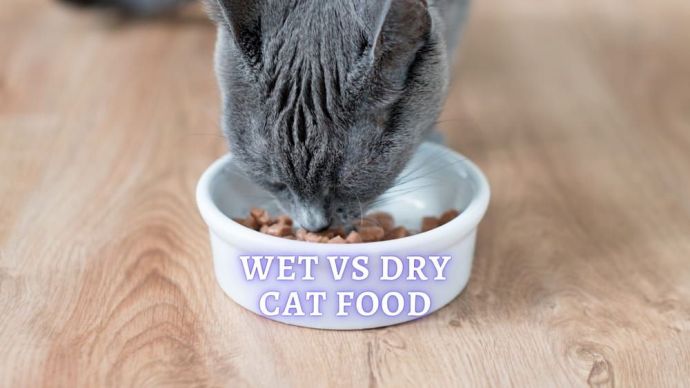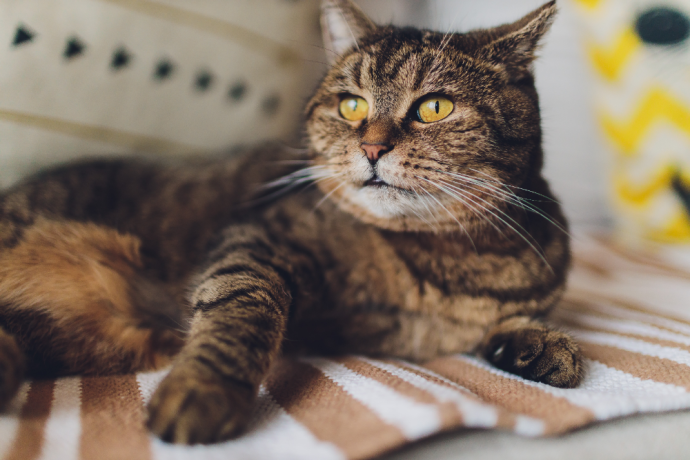Can Cats Eat Tuna? Is Canned Tuna Good for Cats?
Written by:
Author: Vicki Smirnova
Vicki Smirnova is a professional writer and editor who adores animals and helps readers get along well with their pets. She has been working in digital media for more than 5 years and has great experience writing content about lifestyle, including pets. Vicki specializes in dog health and nutrition, cat feeding, dog training. She is an aquarium lover and is passionate to write about fish care at home. Also, Vicki headed several websites and worked as a news editor.
View all 245 articlesLearn about our editorial process and veterinary review board.
Reviewed by:
Veterinary review
by Dr. Joanna De Klerk
Dr. Joanna de Klerk is a professional Clinical Veterinarian. Member of the Royal College of Veterinary Surgeons UK and a member of the South African Veterinary Association. Graduated with a Master of Science in Tropical Animal Medicine in 2018. Professional author, she has been writing in scientific journals, and also several book series. Joanna loves to enjoy time with her young daughter and family in her free time.
View all 10 articlesLearn about our veterinary review board
Viewed: 521
Updated on: 07/01/2021
When it comes to feeding your feline friends, it is essential to remember that they do not have the exact same diets as you. Your cat’s digestive system will not respond well to everything you like to eat, and some stuff can be downright harmful to them, so it is essential to know what your pet can and cannot eat.
Tuna is often associated with cats and has been for many years. We have all seen cats craving this particular fish dish in old cartoons or adverts, but are they supposed to eat tuna? A lot of canned tuna these days contains more than just fish and water. Tuna can be found tinned with sunflower oil, saltwater, brine, or tomato sauce. These added ingredients and chemicals can be dangerous for your cat in large quantities, so be on the lookout for them. If you do want to give your cat some canned tuna, you should clean it of all added ingredients. It’s always better to be safe than sorry.
Can Cats eat raw tuna?
There are actually many debates over whether cats should be given raw food. Some experts claim that fresh food in a cat’s diet is like raw food in a human’s menu, which brings plenty of risks, including bacterial infections such as salmonella and campylobacter. Veterinarians do not recommend feed cats fresh fish, as it contains an enzyme that destroys thiamine (a B vitamin), which can cause neurological problems, convulsions, and death.
Can Cats eat cooked tuna?
If you want to feed your cat tuna, then cooking is often the safest method. This is because heating the food kills all bacteria, making it far more reliable for your feline friend to eat that the raw equivalent. Remember that your cat is used to a far more unadorned dish than your taste buds may crave. Avoid adding any salt, oil, seasonings, or extra flavorings to the tuna before feeding it to your cat. The easiest way to achieve this is often to cook your cat’s tuna separately to yours just to ensures that it remains dull and safe for them to eat.
Can Cats eat tuna in supermarket Wet Food?
The vast majority of cat owners have purchased wet food pouches in the past to provide their pets with a healthy dinner without having to actually prepare anything. These wet food pouches are specifically designed to contain all the nutrients and goodness that your cat needs to grow and stay healthy. Fortunately, all pet food is regulated and must meet strict nutritional guidelines to be allowed to be marketed. You can find that some of these supermarket pouches contain tuna, which has been processed to ensure it is safe for feline consumption. You can sleep comfortably, knowing that this kind of tuna product is perfect for your cat, as it satisfies any craving for tuna and provides the necessary vitamins and nutrients.
How much tuna should you feed your cat?
You should never feed your cat an exclusive diet of tuna. Any cat needs a balanced diet that includes a wide variety of proteins, vitamins, and nutrients (proteins, carbohydrates, fiber, fat, minerals, vitamins, and moisture). Not only would an exclusive or high tuna diet be unhealthy for your pet in terms of providing a range of foods, but tuna is also high in mercury, which in large amounts can cause mercury poisoning, which leads to neurological problems like the inability to balance and walk. If you are set on giving your cat tuna on a semi-regular basis, keep it as a treat. It should be treated as an occasional meal and only ever in a wet pouch, cooked plain, or from a can without any added oils and salt.
READ MORE: Best Dry Cat Food
What foods are toxic to cats?
As we explained above, feeding your cat an exclusive diet of tuna that is riddled with salts and oils is extremely dangerous for your pet. They would not only be enduring unhealthy food but also risk mercury poisoning from the fish. The problem is that tuna has long since been linked with cats, despite the fact it is not the best food for them. The same problem also occurs with milk, as cats are actually lactose intolerant. Despite this, cartoons, films, and adverts have always pictured cats licking up bowls of milk. So, what foods are toxic to your feline friends, and what should you avoid?
- Onions and garlic
- Raw eggs
- Raw meat
- Chocolate
- Caffeinated drinks
- Alcohol
- Raw dough
- Milk and any other dairy products
- Grapes and raisins
- Dog food
- Raw fish
- Potatoes
- Green tomatoes
- Fat trimmings
- Tea
- Lilies
- Antifreeze – Cats often find this appealing due to the sweet taste
- Medicine – Never give your human-cat medicine if they are ill
- Bones – Also dangerous, but not toxic
If your cat consumes even a small amount of any of the above, it can have a devastating effect on their health. If you notice that your cat has eaten or drunk anything deemed poisonous, you should immediately take to your local veterinarian for a check-up.
You can feed the cat tuna from time to time, but you should know the measure. Let’s take the best out of this product. A can of tuna once a week is an excellent addition to the main diet!
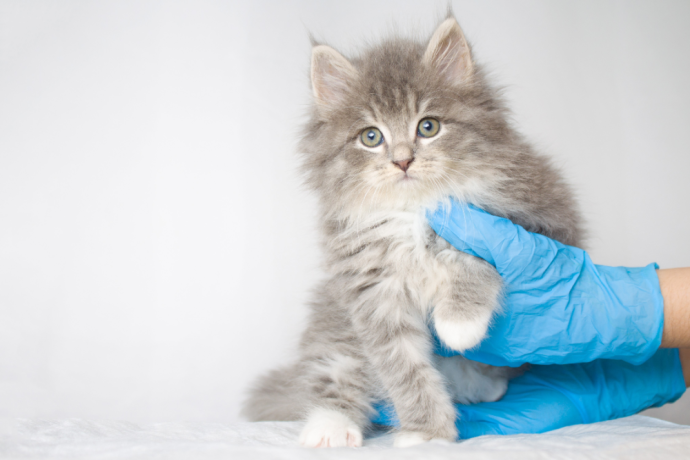 Cat Veterinary Tips Dehydration in Cats: Causes, Signs, Symptoms, and Treatment
Cat Veterinary Tips Dehydration in Cats: Causes, Signs, Symptoms, and Treatment - 374
- 0
 Cat Care Why Does My Cat Attack My Legs? 10 Reasons Why and What To Do About It (Vet-Approved Advice)
Cat Care Why Does My Cat Attack My Legs? 10 Reasons Why and What To Do About It (Vet-Approved Advice) - 45566
- 21
 Cat Veterinary Tips Cat Stomach Gurgling: Vet Advice on Why is Your Cat Stomach Gurgling?
Cat Veterinary Tips Cat Stomach Gurgling: Vet Advice on Why is Your Cat Stomach Gurgling? - 35339
- 4
 Cat Veterinary Tips My Cat Lost its Voice: Can Cats get Laryngitis? (Vet Advice)
Cat Veterinary Tips My Cat Lost its Voice: Can Cats get Laryngitis? (Vet Advice) - 23247
- 13









